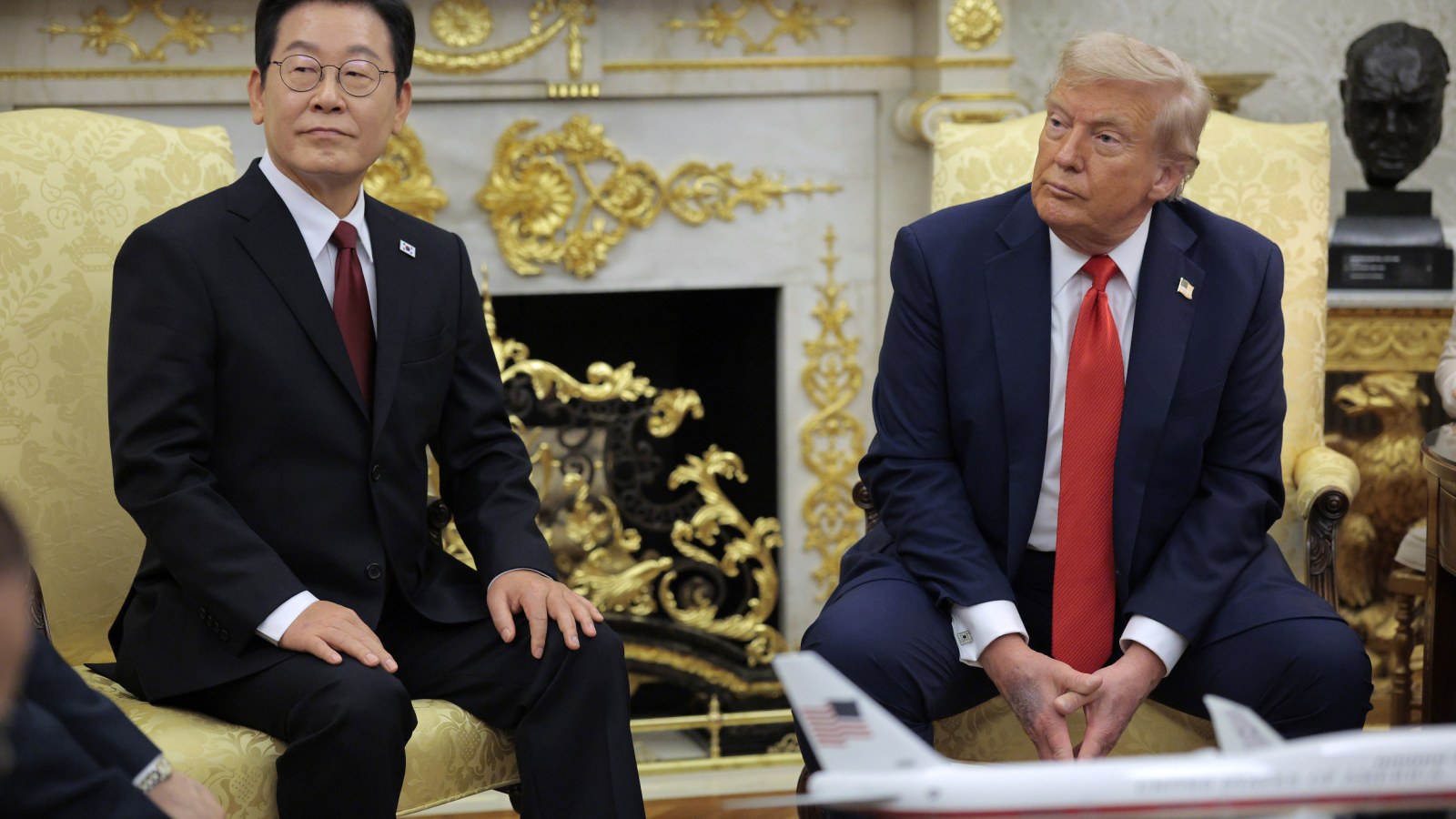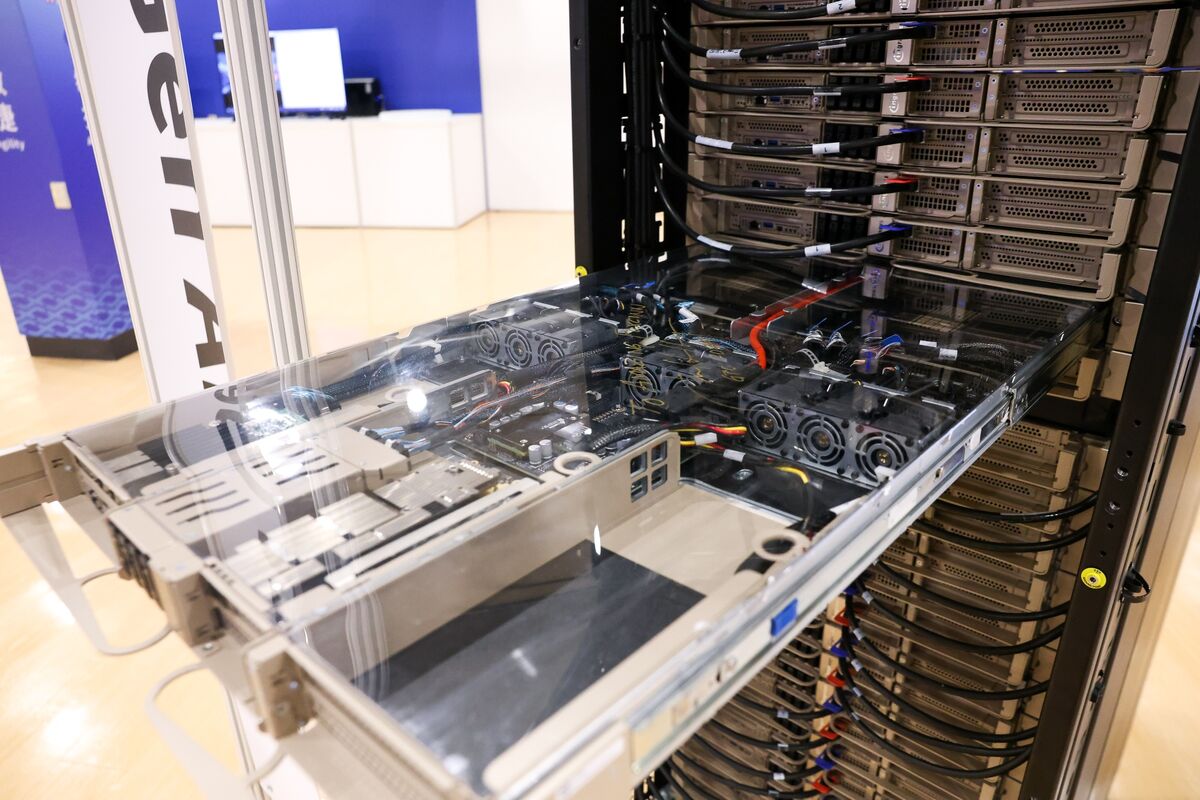By Hugh Cameron
Copyright newsweek

President Donald Trump has stressed that he does not want America’s law enforcement efforts to deter countries from investing in the United States, days after Immigration and Customs Enforcement (ICE) raided a Georgia factory and detained hundreds of South Korean nationals working there.”I don’t want to frighten off or disincentivize Investment into America by outside Countries or Companies,” Trump posted to Truth Social on Sunday.Newsweek reached out to Hyundai, which operates the Georgia factory, for comment outside of regular hours.Why It MattersThe raid has strained diplomatic relations and sparked a firestorm of criticism in South Korea, with other companies, besides Hyundai, reportedly now cautious about the future of their U.S.-based projects.The Trump administration has touted high levels of foreign direct investment as a major byproduct of its tariffs; however, the fallout from its recent immigration enforcement actions suggests that Trump’s economic policies may be coming into conflict with his domestic agenda.What To KnowThe enforcement action, which took place on September 4, marked the largest single-location raid since the launch of Trump’s second-term crackdown on illegal immigration.The electric vehicle battery factory plant where the raid took place represented one of the most significant foreign-led economic development projects in U.S. history. Dubbed a “once-in-a-generation opportunity” by Georgia Governor Brian Kemp, the factory was scheduled for completion in late 2025 and was projected to create 8,500 jobs by 2031.ICE officials said that those at the factory had either overstayed their visas or were not authorized to work in the U.S. Hyundai stated that none of the individuals detained were its direct employees, while LG Energy Solution, which co-runs the battery plant, noted that many of those arrested had visas or were participating in a visa waiver program, according to the BBC.One factory worker who saw the raid take place told the broadcaster that some of the workers were taken away in chains by ICE agents, while another who spoke to Reuters said they had been deterred from ever returning to their job at the factory. The majority of the workers detained in the raid have returned to South Korea.The incident has sparked outrage across South Korea, which has recently committed hundreds of billions of dollars in U.S. investments to lower its tariff rates to the current 15 percent. And while Trump has said the U.S. should avoid alienating its most openhanded foreign investors, the fallout may have already inflicted significant damage.The South Korean government has launched an investigation into potential human rights abuses that occurred during the raid, while President Lee Jae Myung warned that it could make Korean firms “very hesitant” about future investments in the U.S.”For Korean policymakers, the incident raises uncomfortable questions about the sustainability of economic partnership and industrial cooperation within the alliance framework,” the Carnegie Endowment for International Peace said on September 11.Meanwhile, sources told The Korea Economic Daily that “at least 22” other factory projects involving Korean firms have been suspended following the raid.While the outlet did not specify which investments may have been halted, an anonymous Korean semiconductor executive told Korea JoongAng Daily that such actions had raised concerns about Samsung Electronics’ advanced chip plant under construction in Taylor, Texas. The individual, whose company is providing equipment to the foundry, said that delays could occur as the company works to secure visas for its Korean employees.Newsweek reached out to Samsung via email for comment.White House spokesman Kush Desai told Newsweek: “Enforcing our laws to safeguard our communities makes our country more, not less, desirable for foreign investment. The United States is proud to be a home for major investments and looks forward to continuing to build on these historic investments and partnerships that President Trump has secured.”President Trump has strongly supported companies legally bringing in foreign technical experts to set up their investments and train up American workers. The Administration is committed to working with foreign companies to quickly and efficiently bring in foreign talent to help Make America Wealthy Again.”What People Are SayingPresident Donald Trump, Sunday on Truth Social: “When Foreign Companies who are building extremely complex products, machines, and various other “things,” come into the United States with massive Investments, I want them to bring their people of expertise for a period of time to teach and train our people how to make these very unique and complex products, as they phase out of our Country, and back into their land. If we didn’t do this, all of that massive Investment will never come in the first place — Chips, Semiconductors, Computers, Ships, Trains, and so many other products that we have to learn from others how to make, or, in many cases, relearn, because we used to be great at it, but not anymore.”Tarek Alexander Hassan, a professor of economics at Boston University, told Newsweek: “We can’t expect foreign companies to build manufacturing plants in the United States without being able to bring in their specialized workforce who know how the technology works. Contact and movement of people is an important ingredient in the process of technology transfer and FDI, in this case from Korea to Georgia.””The bottom line is you can’t get the Korean technology without some Koreans coming in at least for a number of years,” he added.South Korean politician Oh Gi-hyoung, a member of the country’s ruling Democratic Party, in a press release: “If the U.S. sincerely wants to attract investment from Korean companies, this should not happen…Considering that the U.S. visa system is not properly prepared and inadequate to support the investment of Korean companies, the U.S. government should provide all necessary accommodations and protections to our detained citizens.”Hyundai Motor Company, in a statement released following the raid: “Hyundai is committed to full compliance with all laws and regulations in every market where we operate. This includes employment verification requirements and immigration laws. We expect the same commitment from all our partners, suppliers, contractors, and subcontractors.”Georgia Governor Brian Kemp, quoted in The Guardian, said: “Georgia has always worked to maintain a strong relationship with the Republic of Korea and Korean partners like Hyundai, stretching back 40 years to the establishment of Georgia’s trade office in Seoul. We are thankful they are reiterating their commitment to adhere to all state and federal laws, just as we remain committed to not allowing this unfortunate incident to undo the decades of mutually beneficial partnerships we’ve built together.”What Happens NextHyundai’s CEO, José Muñoz, recently said that the ICE raid will likely delay production at the battery plant by “two to three months,” due to the resulting worker shortfall.



